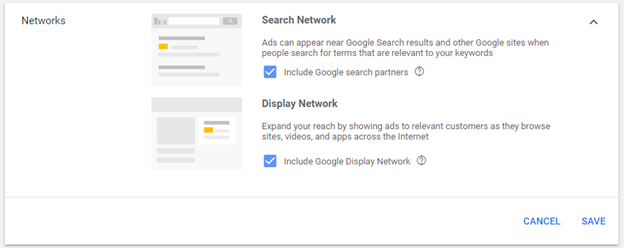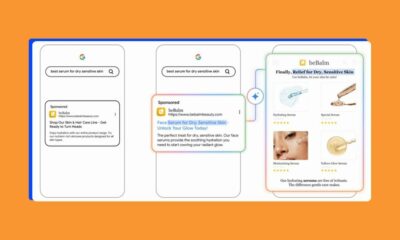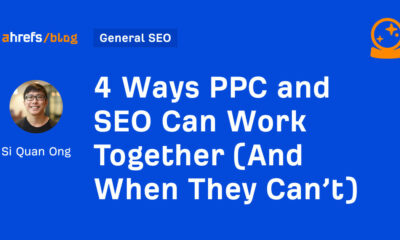How to best utilize the networks within Google AdWords

30-second summary:
- Google networks can be tricky when deciding which ones are best for your goals and budget
- Three tips that will help you to utilize the networks strategically
- You first need to understand the difference before selecting a network
- Clean data is key when analyzing performance, so it is best to keep network targeting separately
- Where a user is at in the conversion funnel will tell you if the network brings conversions
- By having two different campaigns that are network specific, you will be able to properly target your audience with clear messaging while being able to access key data points quickly and accurately
There are two networks within Google AdWords – display and search. When you set up a campaign for the first time, you may notice an option to add either one of these within the settings.
The search network ads appear on Google’s search results page, and the display network ads appear on sites, videos, and apps. But what looks like a good idea to get more visibility, may not help you in the end when measuring performance.

To reap the benefits of both search and display, you need to be strategic about how you are targeting users on these platforms. Here are three tips for utilizing the networks within Google AdWords:
Tip #1: Know the difference
Display select versus display network are different even though the listing of display network in your settings can be a little misleading. The display select is a hybrid campaign model. While you can take your search network ads to the next level by adding them to display, it is not ideal for tight budgets.
By nature, the display network expands its reach to a broader audience. When you add this option, you are releasing control over to Google. By keeping everything in search, you are targeting an active user who wants to find something relative to the keywords within the campaign.
The display network will boost visibility, but it is not as targeted and should not be used by those with a smaller budget. When users are on even display select, they may not be ready to buy. In fact, these users are far out in the conversion funnel. Accomplishing clicks is not easy in this network with an ad-driven by copy.
For those who need to increase awareness, then display is for you. Ad space on the network is great, so you can reach and broaden your audience.
Tip #2: Make sure data is clean
If you are using a search network with display select, then your data may not be as clean. The search network has a higher click-through rate (CTR) than the display. So, if you are looking at the overall data of the campaign, you may not be able to get a quick and accurate look at performance.
The impressions and clicks generated by the display network are not applied to the keywords within your campaign. The reason for this is because those impressions and clicks are not actually “search”. Therefore, to truly evaluate performance, you need to take a deeper look.

To measure, you need to go to each individual ad group in Google AdWords and look at how the display select and the search network are each performing. Users are in different places within the conversion funnel, so it is important to understand the industry benchmarks for each network when measuring data. Therefore, it is recommended to divide the campaigns when using both of Google AdWords’ networks.
Tip #3: Understand the conversion funnel
The conversion funnel is made up of different stages, such as awareness, consideration, and decision. When a user is on the display network, they are most likely in the awareness stage. When a user is in the search network, they are at the bottom of the funnel. These users know they want to buy a product or service, but they are evaluating where to buy it.
The reason you need to understand the funnel is not only from a data perspective, but it is also for creating quality ad copy. Your messages should be appropriate for where that user is in the conversion funnel. You would never ask someone to buy from you if you just met them at a networking event. It is important to meet the user where they are at by creating ad copy that is relevant.
A dual-network strategy is not for everyone. So, before diving into both, determine your goals and evaluate if both will help you to meet them. By having two different campaigns that are network-specific, you will be able to properly target your audience with clear messaging while being able to access key data points quickly and accurately.
Ashley G. Schweigert is Owner at Marcom Content by Ashley, LLC.














